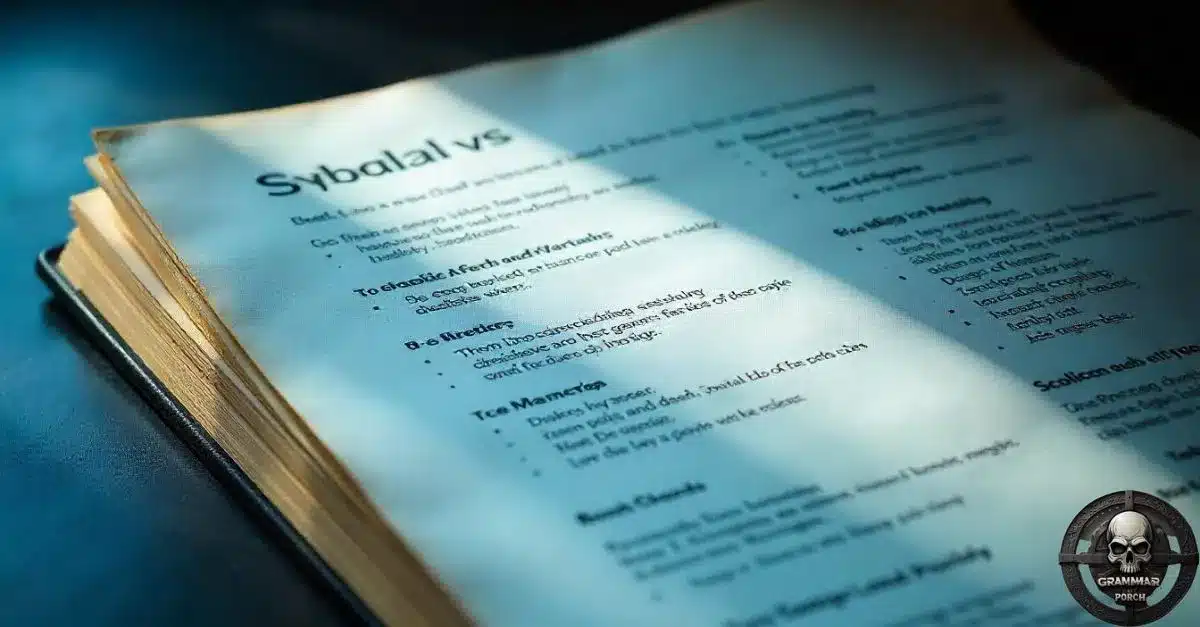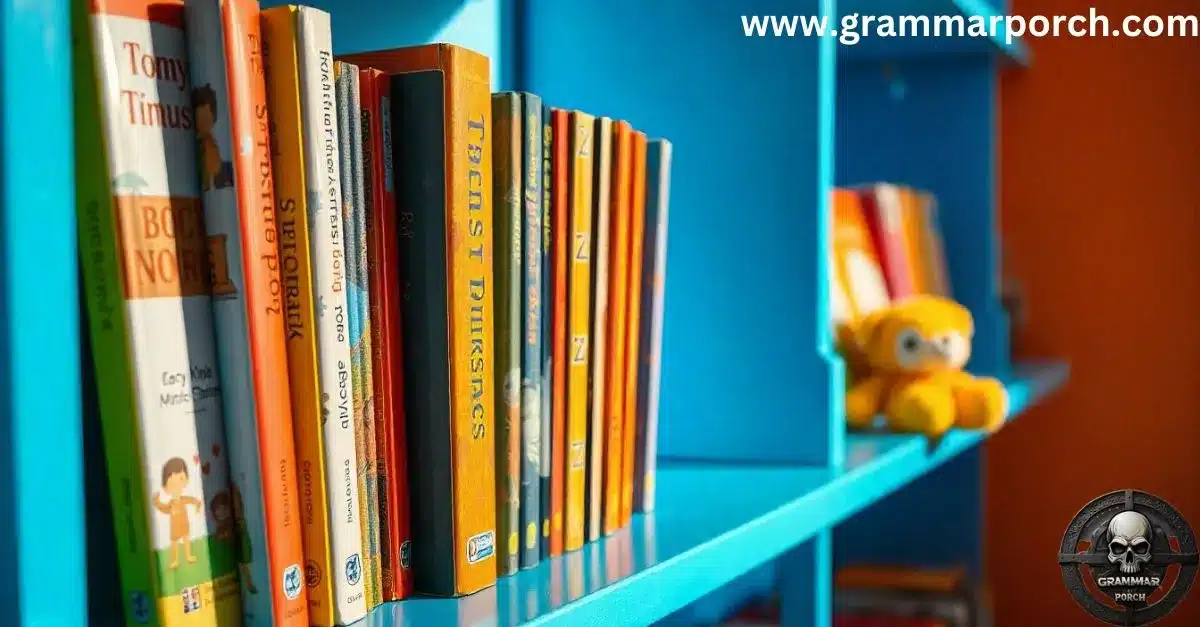Have you ever wondered about the correct way to refer to multiple course outlines. If you’ve found yourself hesitating between “syllabi” or “syllabuses,” you’re not alone. This common confusion stems from the unique way English handles words with Latin origins. As educational institutions evolve and language continues to adapt, understanding the correct usage of these terms becomes increasingly important.
Whether you’re a student managing multiple course documents, an educator preparing teaching materials, or simply someone interested in proper language usage, this comprehensive guide will clarify the plural forms of syllabus and help you use them confidently in any context.
What is Syllabus?

A syllabus is your essential academic companion that outlines course content and expectations. This vital document serves as a roadmap through your educational journey, detailing everything from assignments to learning goals.
Definition of Syllabus
In its most basic form, a syllabus is a detailed document that outlines the topics, materials, and expectations of an academic course. It acts as a formal agreement between instructors and students, establishing clear guidelines for success in the classroom.
Meaning of Syllabus
The meaning extends beyond just a simple course outline. A syllabus embodies the structured approach to learning, incorporating learning objectives, assessment criteria, and essential course information into one comprehensive guide.
What is the syllabus in education?

In educational settings, a syllabus functions as both a planning tool and a communication device. It helps students understand what they’ll learn, how they’ll be assessed, and what’s expected of them throughout the course duration.
Plural of Syllabus: Is it Syllabuses or Syllabi?
The plural form of syllabus presents an interesting linguistic choice. Both “syllabi” and “syllabuses” are correct in modern English. While “syllabi” follows the traditional Latin pluralization pattern, “syllabuses” follows standard English pluralization rules.
Some Nouns ending with ‘-us’ and their Plurals
| Singular | Regular Plural | Latin Plural | Common Usage |
| Syllabus | Syllabuses | Syllabi | Both accepted widely |
| Cactus | Cactuses | Cacti | Both common |
| Fungus | Funguses | Fungi | Fungi more common |
| Nucleus | Nucleuses | Nuclei | Nuclei preferred |
| Stimulus | Stimuluses | Stimuli | Both used |
| Focus | Focuses | Foci | Context dependent |
| Radius | Radiuses | Radii | Radii in mathematics |
| Campus | Campuses | Campi | Campuses preferred |
| Alumnus | Alumnuses | Alumni | Alumni standard |
| Hippopotamus | Hippopotamuses | Hippopotami | First more common |
What about Syllaboi?
“Syllaboi” is an incorrect and humorous variation that has emerged in casual internet usage. While it might appear in informal online discussions, it’s not recognized as a proper plural form and should be avoided in any formal or educational context.
Should I use syllabus or syllabi?

The choice between “syllabus” or “syllabi” often depends on your audience and context. In academic writing and formal educational settings, “syllabi” is often preferred. For general communication and everyday use, “syllabuses” works perfectly well.
Pronunciation of Syllabus
- Singular (syllabus): SIL-uh-buhs
- Plural (syllabi): sih-LAB-eye
- Plural (syllabuses): SIL-uh-buhs-iz
Difference in UK and US English of Syllabus
In both British and American English, the spelling of “syllabus” remains the same. However, British English tends to favor “syllabuses” as the plural form, while American English commonly uses both “syllabi” and “syllabuses“.
Origins of the Word “Syllabus”

The word “syllabus” has fascinating historical roots, originating from a misprint of the Greek word “sittybas” (meaning a table of contents) in Cicero’s letters. It entered the English language in the 1650s and has since evolved to become a crucial term in education.
Examples in Context (Singular and Plural)
Singular (“Syllabus”)
- The professor uploaded the syllabus to the course website.
- Each syllabus must include clear learning objectives.
- I need to review the syllabus before class tomorrow.
- The syllabus outlines all major assignments.
- Have you read through the entire syllabus yet?
- This syllabus seems more challenging than last semester’s.
- The department chair approved the new syllabus.
- Your syllabus contains important due dates.
- A well-designed syllabus helps students succeed.
- The syllabus explains the grading policy.
Plural (“Syllabuses”)
- The syllabuses for all courses are available online.
- Modern syllabuses often include technology policies.
- Students should download their syllabuses before classes begin.
- These syllabuses need updating before next term.
- The dean reviews all syllabuses annually.
- Most syllabuses follow a standard format.
- The department posted new syllabuses yesterday.
- These syllabuses reflect current teaching methods.
- Well-structured syllabuses help organize courses effectively.
- The committee approved all course syllabuses.
Plural (“Syllabi”)
- Faculty must submit their syllabi two weeks before term starts.
- The university archives past syllabi electronically.
- These syllabi need revision before next semester.
- Department heads review all syllabi annually.
- The academic office keeps copies of all syllabi.
- Students should save their syllabi for future reference.
- Current syllabi reflect modern teaching approaches.
- The committee evaluated twenty syllabi today.
- Most syllabi include academic integrity statements.
- Digital syllabi have replaced paper versions.
Synonyms for the Word “Syllabus”
Formal:
- Course outline
- Curriculum guide
- Program overview
- Course framework
- Academic plan
Informal (use with caution):
- Class guide
- Course roadmap
- Study plan
- Class blueprint
- Course rundown
5 FAQs
- Why does syllabus have two plural forms?
Both forms developed through different linguistic traditions.
- Which plural form is more professional?
“Syllabi” is often considered more formal in academic settings.
- Can I use both forms in the same document?
It’s better to choose one form and stay consistent.
- Which form is more common globally?
“Syllabuses” is more common in British English, while both forms are used in American English.
- Is one form more correct than the other?
No, both forms are equally correct in modern usage.
Conclusion
Language evolves constantly, and the case of “syllabus” perfectly illustrates this dynamic nature. Whether you choose “syllabi” or “syllabuses,” remember that effective communication matters more than strict adherence to traditional forms.
As we’ve explored throughout this guide, both plural forms have their place in modern English, and your choice should depend on your audience and context. Moving forward, you can confidently use either form, knowing you’re contributing to the rich tapestry of English language usage while maintaining clear and effective communication in educational settings.

Larry is an experienced blogger with a passion for simplifying grammar. With years of expertise in writing and language, he shares insightful tips on punctuation, synonyms, and the intricacies of English grammar at **Grammar Porch**. His approachable style helps readers improve their writing skills with ease.

